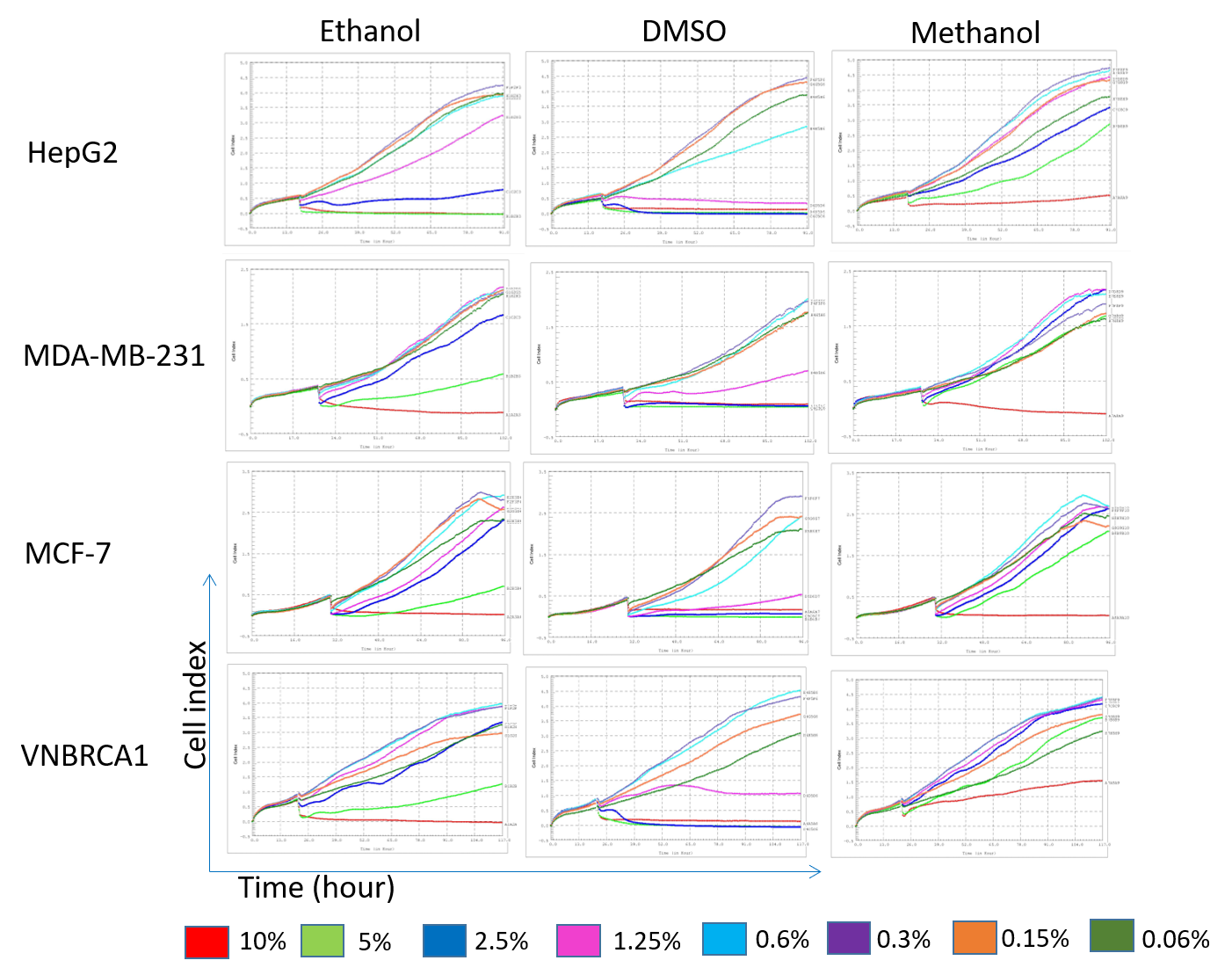Comparative cytotoxic effects of methanol, ethanol and DMSO on human cancer cell lines
DOI:
https://doi.org/10.15419/bmrat.v7i7.614Keywords:
(Dimethyl sulfoxide) DMSO, ethanol, methanol, concentration, toxic, cancer cellAbstract
Introduction: Anti-tumor drug screening is the most popular technique in drug discovery. In this technique, various agents were tested for their cytotoxicity on cell lines, particularly cancer cell lines. Since most of these agents are weakly soluble in water, they can be normally dissolved in lipophilic solvents. To obtain accurate results, the requirement of these solvents are that they be biocompatible and non-toxic to cells. The aim of this study was to investigate the biological effects of the three agents most commonly used as drug vehicles, i.e. dimethyl sulfoxide (DMSO), ethanol and methanol, using cell proliferation measurement techniques.
Methods: To minimize the errors from the measurement techniques, this study used the xCelligence RTCA system which entails real-time monitoring of cell proliferation without dye labeling. Under the wide range concentration of solvents (from 0% to 100% of solvents by serial dilutions), the cell index (CI) and slope of cell proliferation curves of HepG2, MDA-MB-231, MCF-7 and VNBRCA1 cell lines were analyzed (by the software provided by the xCelligence system).
Results: The results showed that DMSO had a significant toxicity and inhibition of proliferation on 4 cell lines, at the concentrations of 10%, 5%, 2.5% and 1.25% (p<0.0001). Methanol and ethanol inhibited cellular proliferation at the concentrations of 10% and 5% (p<0.0001). The concentrations of ethanol and methanol ranging from 2.5% to 0.15% concentration were well-tolerated by cells with respect to proliferation. Depending on the extracts or agents, each should be diluted in the suitable vehicle at the proper concentrations.
Conclusion: Ethanol and methanol are good choices for solvents since they have low toxicity on HepG2, MDA-MB-231, MCF-7 and VNBRCA1 cell lines. However, in the case of agents only dissolvable in DMSO, low concentrations of DMSO from 0.6%-0.015% should be considered.

Downloads
Published
Issue
Section
License
Copyright The Author(s) 2017. This article is published with open access by BioMedPress. This article is distributed under the terms of the Creative Commons Attribution License (CC-BY 4.0) which permits any use, distribution, and reproduction in any medium, provided the original author(s) and the source are credited.
